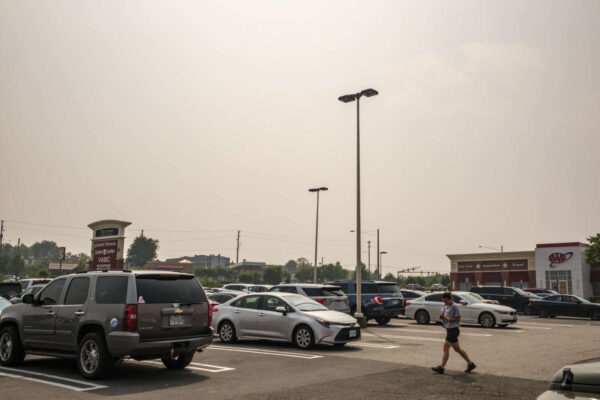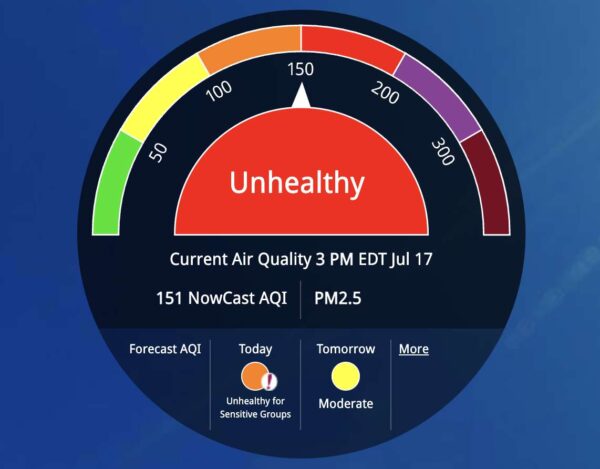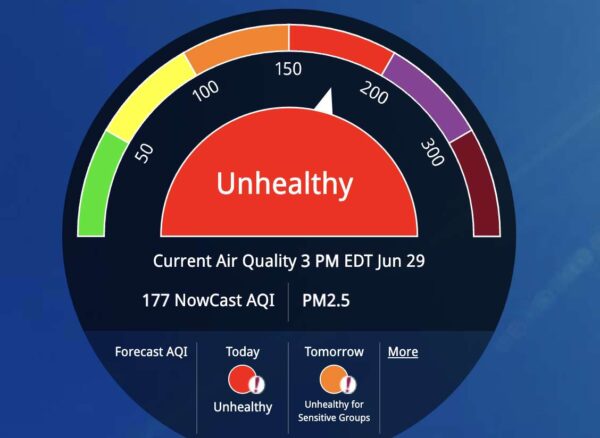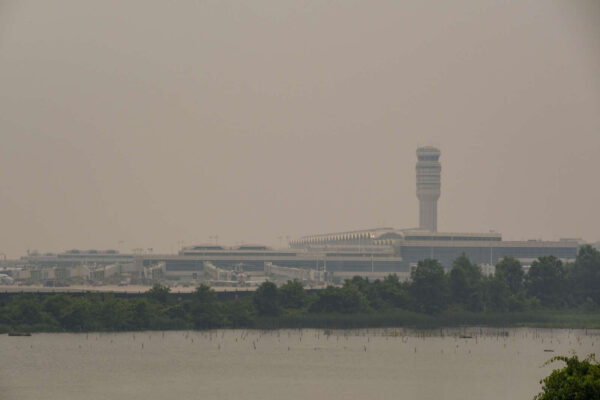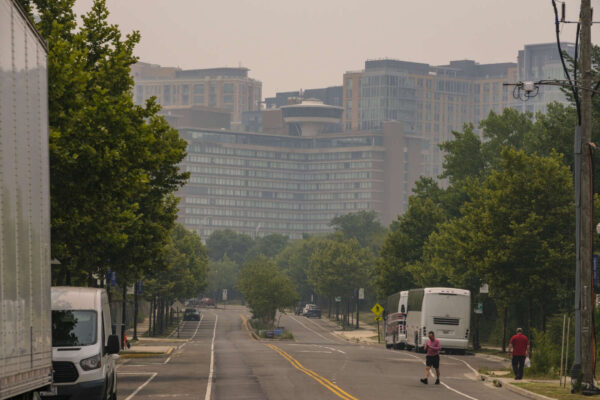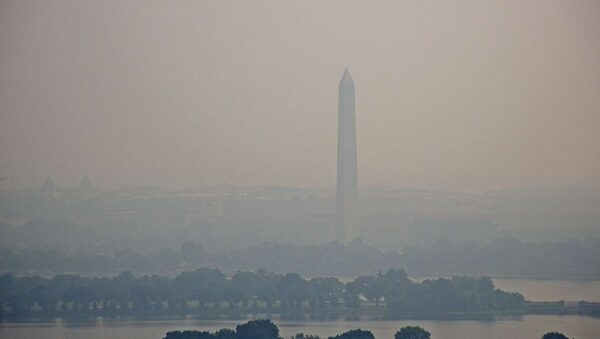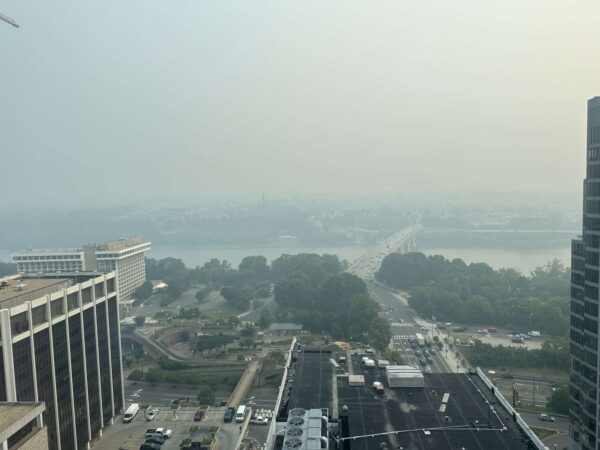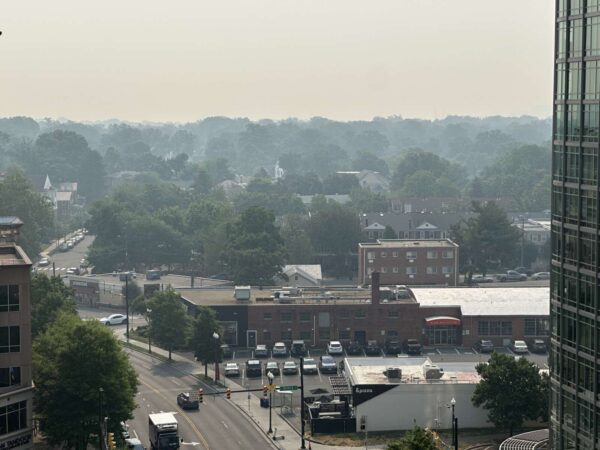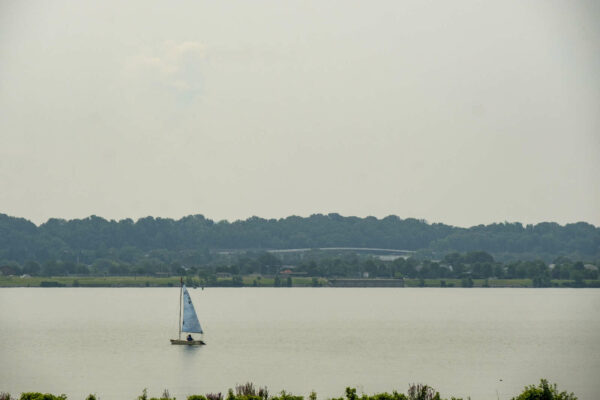Arlington Man Arrested for Fairfax Murder — “A man was arrested in connection to the homicide of 32-year-old DonorSee founder Gret Glyer, according to Fairfax City Police officials. Joshua Danehower, 33, of Arlington, Va., was arrested at Dulles International Airport Tuesday night. He was charged with second-degree murder in connection with Glyer’s death, according to police. He was also charged with one count of use of a firearm during the commission of a felony.” [WJLA, Fox News]
Air Quality Warning Today — “The Virginia Department of Environmental Quality has issued a Code ORANGE Air Quality Alert Thursday for Northern Virginia. A Code Orange Air Quality Alert means that air pollution concentrations within the region may become unhealthy for sensitive groups.” [National Weather Service]


